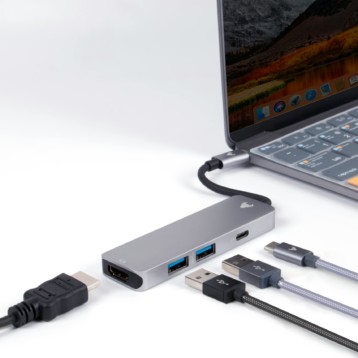
Volunteers play a vital role in organizations, dedicating their time and energy to various causes. When it comes to monitoring volunteer hours, it is essential to ensure accuracy and efficiency. In this post, we will explore tools and techniques that can streamline the process and guarantee precise data collection.
Electronic Sign–in Systems
Leveraging sign-in systems, including volunteer tracking software, emerges as an effective method for monitoring volunteer hours. These systems empower volunteers to self-register through a computer or tablet upon reaching the organization, eliminating the need for paperwork and ensuring accurate data recording.
Some advanced sign-in systems, particularly those integrated with volunteer tracking software, offer additional features such as capturing photographs of volunteers to enhance security measures. Moreover, these systems can automate report generation based on collected data, significantly streamlining the reporting process for improved efficiency and transparency.
Time Tracking Apps
As smartphones become increasingly prevalent, time-tracking apps provide another option for documenting volunteer hours. These apps enable volunteers to log their start and end times directly from their mobile devices.
Time-tracking apps often boast user-friendly interfaces that make it effortless for volunteers to navigate and input their work hours seamlessly. Moreover, these applications have the capability to generate reports that can be exported and shared with individuals, saving valuable time and eliminating the risk of errors associated with manual data input.
Web-based Software for Managing Volunteers
For organizations that manage groups of volunteers with scheduling requirements, web-based volunteer management software offers a highly efficient solution for accurately tracking volunteer hours.
These software solutions provide functionalities such as email reminders for upcoming shifts or events, as well as real-time reporting options that enable administrators to monitor volunteer hours easily.
Barcode Scanners or ID Cards
Barcode scanners or ID cards can be effectively utilized to ensure accurate registration of volunteer hours at events or on-site activities.
By assigning barcodes or RFID tags to volunteers, they can easily scan their code using dedicated devices specifically designed for this purpose during check-in/check-out processes.
This streamlined approach minimizes errors caused by data entry and enables administrators to effortlessly match duties with corresponding volunteers.
Self-reporting and Verification Systems
In situations where volunteer work may not take place at a location or under supervision, self-reporting methods combined with verification systems can prove beneficial.
Typically, volunteers submit their work hours through a portal or via email. However, it is important to ensure accuracy and reliability by implementing a straightforward verification system. This can be achieved by providing contact information for supervisors or project leads who can verify the reported hours.
Adding this step not only helps uphold the credibility of reported volunteer hours but also minimizes the possibility of errors or misrepresentation due to unintentional mistakes.
Training and Clear Guidelines
To ensure tracking of volunteer hours, organizations should offer training and clear guidelines to volunteers. Organizations can educate volunteers on the significance of time tracking and its impact on reporting and resource allocation by conducting orientation sessions or training. Volunteers should be familiarized with the tools and techniques used for tracking their hours, whether it involves sign-ins, apps, or any other method implemented by the organization.
Regular Reviews and Audits
Regular reviews and audits play a role in maintaining accuracy while tracking volunteer hours. Organizations should periodically review reports generated by tracking systems to ensure that all data has been captured correctly. These reviews provide organizations with the opportunity to catch any discrepancies or errors early on.
Furthermore, conducting audits of volunteer records can further improve accuracy. Organizations can randomly select a sample group from their pool of volunteers and compare their reported hours with records or supervisor verification. This helps validate the data collection methods and reinforces the importance of reporting among volunteers.
Conclusion
Properly tracking volunteer hours is crucial for organizations to accurately report their impact and make decisions about resource allocation. By offering training sessions to educate volunteers on the tools and techniques used to record their hours, as well as establishing clear guidelines for timekeeping, organizations lay the foundation for reliable reporting.
Regular reviews and occasional audits ensure accuracy in recording volunteer hours. Emphasizing the significance of reporting not only maintains credibility but also fosters a culture of accountability among volunteers.
By implementing these measures alongside tools and techniques, organizations can streamline their process for tracking volunteer hours while saving valuable time for more meaningful work—all while ensuring accurate reporting and efficient resource allocation. Accurately tracking volunteer hours contributes to establishing transparency and integrity within organizations, strengthening their impact in the communities they serve.










